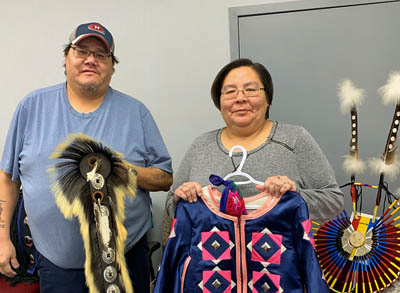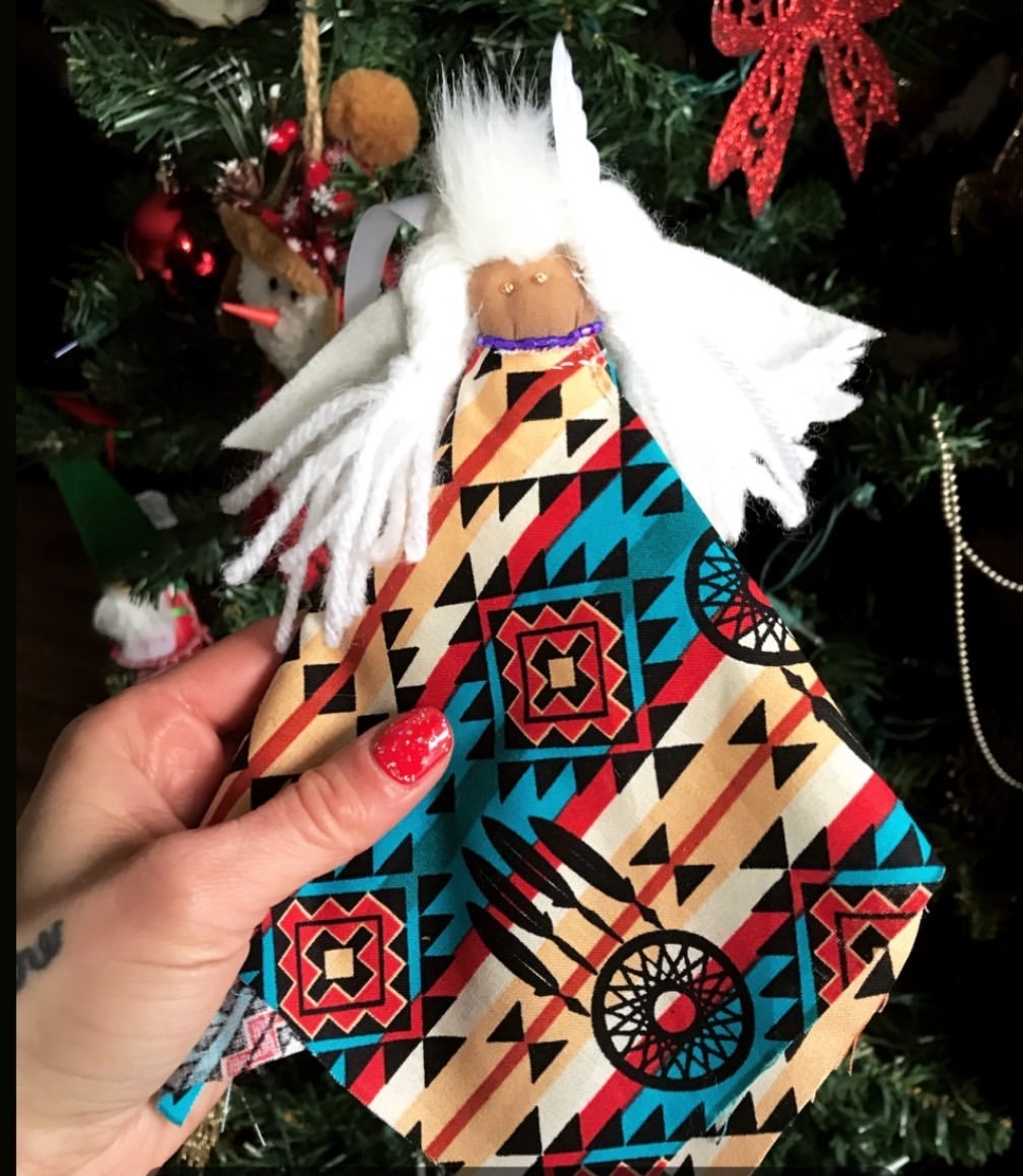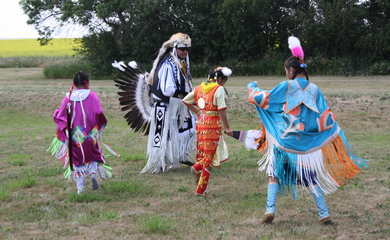At Ranch Ehrlo, we know the importance of culture – not just talking about it but experiencing it.
With the majority of our participants of Aboriginal descent, we strive to provide cultural experiences that we know matter. Regardless of what program are participants are part of, we try to give them as many opportunities to experience their culture as possible.
“Our goal is to not just talk. It’s not enough to just say, ‘we’re attending the Ranch’s powwow.’ We need to teach, guide, model, and mentor the importance of their culture,” said Treatment Foster Care (TFC) program manager Lisa Neill.

To that end, TFC parents Heather Whitequill and Quincy Dustyhorn hosted a presentation for the families in the program called “Powwow 101” for the foster parents in the program.
“We actually got into dancing because of the Treatment Foster Care program. We’ve always sort of attended powwows sporadically, and then when we were completing our training to become foster parents, we learned that kids who didn’t have exposure to their culture look for it, sometimes, in unhealthy ways,” Heather explained.
“We took the kids to a powwow and we were surprised at how much they loved it once they were exposed to it. They started dancing, and they just didn’t stop. Watching the girls inspired my husband to get his outfit done, and then he started dancing with them the next year,” she continued.
“One of the greatest things about powwow is that it teaches our kids, especially our kids in care, that they can and should be proud of who they are and where they come from,” Heather added.
In our schools, students have had several opportunities to connect with their culture recently.
 From October to December 2019, students at Schaller Education Centre had the opportunity to work with Joely BigEagle-Kequahtooway and Lorne Kequahtooway from Buffalo People Arts Institute. They worked on leather moccasins and other crafts with the youth.
From October to December 2019, students at Schaller Education Centre had the opportunity to work with Joely BigEagle-Kequahtooway and Lorne Kequahtooway from Buffalo People Arts Institute. They worked on leather moccasins and other crafts with the youth.
“Joeley and Lorne were fantastic,” said Kirsten Endicott, Schaller resource coordinator. “We created a very positive connection and hope to continue to have them out for other initiatives as well.”
Angel Whitestar works with families in our Family Treatment Program and students in some of our education programs to do beading and other crafts. All of these crafts have deep significance.
“I grew up in a powwow family so all these sewing and crafts I learned at a young age through helping my parents make regalia or fancy dance bustles,” Angel explained. “My family always told me if you have a gift share it. Keep the culture and knowledge alive and strong.”
“I have so much more that I would love to share that I have learned throughout the years,” she added.
“We need the cultural aspect to be a living piece in our programs,” Lisa concluded.


